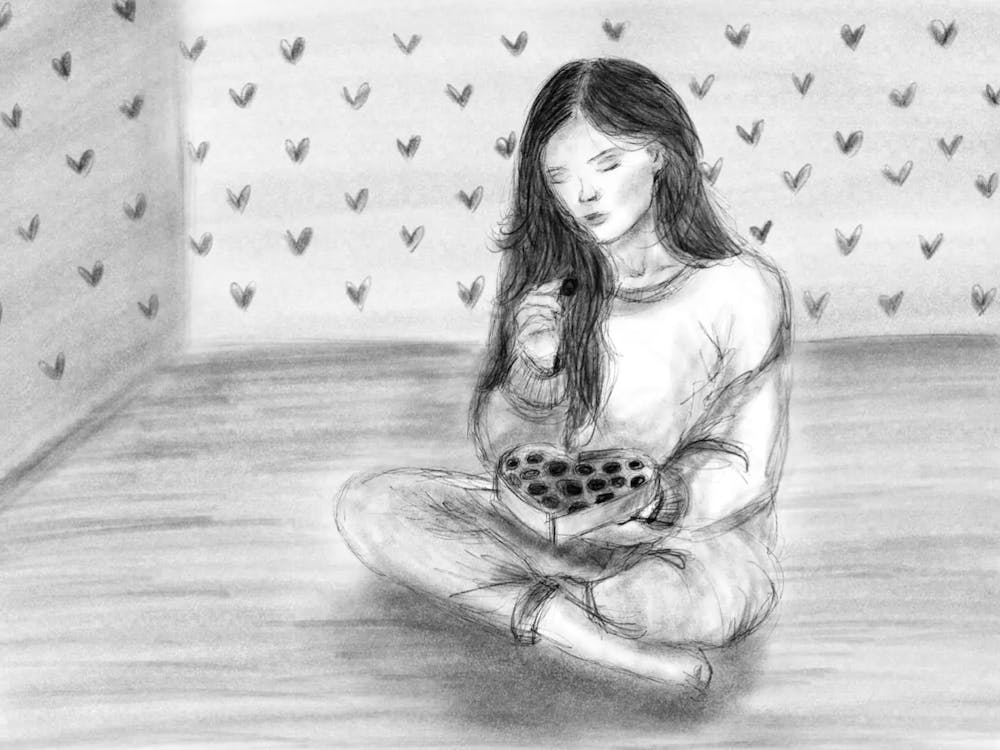Third-year College student Keisha Blackmoore had a boyfriend at age 15 - a boyfriend whom she met and became increasingly close to using MSN messenger.
"We talked online and then decided to date. The relationship lasted for eight months, and I only saw him for the first time after we broke up. It was a learning experience - I wouldn't do it again," she said.
Blackmoore's adolescent experience reflects a dating trend that has become increasingly prevalent among college students - the use of online social networking to forge personal and romantic relationships. But with 500 million active users on Facebook, this hardly comes as a surprise.
"Facebook is definitely an important dating tool. I've met guys through mutual friends or groups," Blackmoore said. "One of my good friends now is someone who sent me a message on Facebook prior to our first year because he was looking to connect with students who were also going to U.Va."
After initiating a request for Facebook friendship, communication is established or strengthened through private messages, comments and chats.
"Generally when you're interested in someone, you can look at their Facebook and see their interests and judge where things should go from there," fourth-year College student Sedale McCall said.\nThis initial evaluation of someone's profile is often a critical step in deciding whether someone is worth getting to know.
"I may see someone on Facebook, and when I actually meet them in person, I compare the two," fourth-year College student Yolanda Beasley agrees said. "It's gotten to the point where people ask if you have a Facebook instead of asking for your phone number."
But although Facebook has clearly revolutionized the dating game, student attitudes vary in regards to the phenomenon. For example, students often disagree about whether it is a good idea to request an individual on Facebook that is a stranger.\nBlackmoore admitted that she has met friends and people of the opposite sex through online social networking in the past, but at the same time, is typically against meeting new people in this way.
"Pictures can tell a lot as well as the information that they choose to share," Blackmoore said. "But it's superficial information. It depends on what network they're in ... It can be dangerous because some people portray themselves differently."
Meanwhile, conflict between what should be considered public versus private information also has carried over into publicizing romantic relationships online. Facebook allows users to post whether they are single or in a relationship, for example, using labels such as 'single,' 'it's complicated,' 'in an open relationship' and more.
Blackmoore recalled problems associated with her first established relationship on Facebook.
"I posted my relationship status, and people were on me about who I was dating. It definitely moved my romantic life from private to public. Friends, family were harassing me, asking questions about him. I had to remove his name from my relationship status in order to protect our privacy," she said.
McCall agreed that the relationship status is an invasion of privacy that can lead to conflict and is completely against its presence.
"It shouldn't be necessary at all. The relationship status is possibly one of the dumbest things Facebook has to offer," she said. "When you first put the status up or when you break up, you get a thousand messages, and it's way too intrusive."\nOn the other hand, some students feel that the absence of a posted relationship status can be detrimental to a previously established relationship.
"If you're in a relationship, you should not be afraid to say you're in a relationship. Otherwise you're hiding it and people may think you're single - and that can lead to drama," Beasley said.
Blackmoore also acknowledged that using social networking benefited her relationship, as it provides another medium for communication.
"Facebook helped our relationship because we were able to keep in contact through posts, pictures and messages when I later traveled abroad in Europe and the Caribbean," she said.
But once a relationship has reached its end, users may be unsure as to how to proceed in terms of remaining Facebook friends with an ex. Oftentimes, it can be difficult for students to avoid cyber-stalking former significant others.
"It's definitely a problem that I've noticed with some of my college-age friends," Blackmoore said. "They have this constant uncontrollable urge to check the guy's wall or pictures. Depending on how much self-control you have, you might want to delete them and limit the amount of activity [you see] because Facebook tells you everything."
At the end of the day, it appears as if the world of dating - inherently complicated and sometimes frustrating - only seems more complex when taken to the world of the Internet.
"When [my boyfriend and I] broke up, I just removed the relationship status completely and decided not to change it again until I'm married. That way I won't have the public in my relationship," Blackmoore said.






